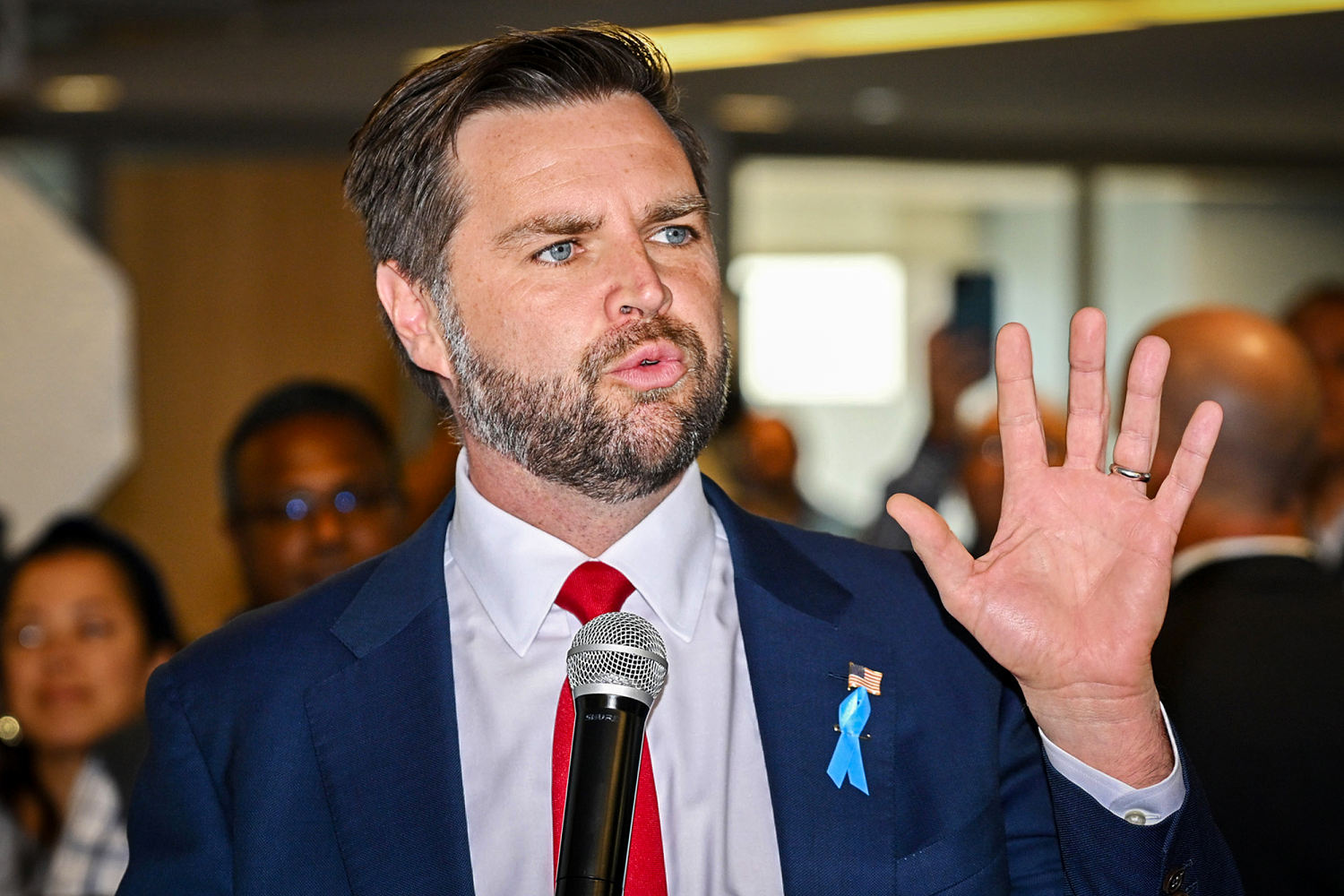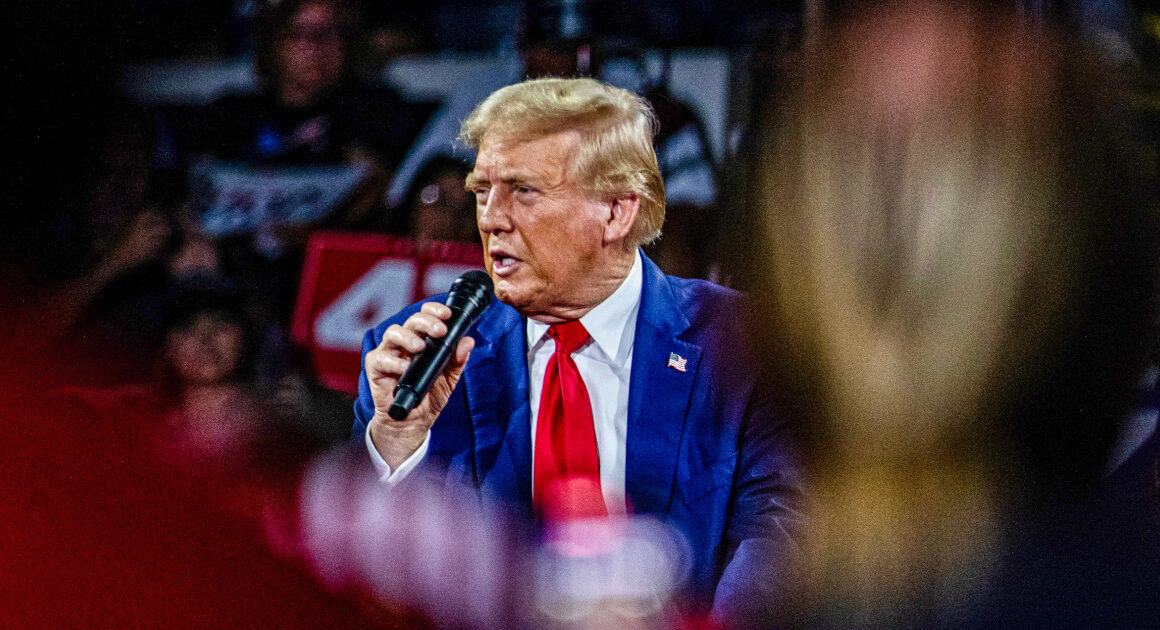
“I’m sure there’s all kinds of ways in which I would be a totally terrible political candidate,” JD Vance said in a recently resurfaced interview, conducted less than three months before he first became a political candidate. How right he was. Vance’s struggles as a running mate are usually ascribed to his personal unlikability. But he gave another answer in that same interview that reveals a more fundamental problem for Vance and other Republican would-be populists — a contradiction that once tore Democrats apart.
Speaking with YouTuber David Freiheit in 2021, Vance proposed a grand theory of American politics:
American history is a constant war between Northern Yankees and Southern Bourbons, where whichever side the hillbillies are on wins. And that’s kind of how I think about American politics today, is like, the Northern Yankees are now the hyper-woke coastal elites. The Southern Bourbons are sort of the same, old-school Southern folks that have been around and influential in this country for 200 years. And it’s like the hillbillies have really started to migrate towards the Southern Bourbons instead of the Northern woke people. That’s just a fundamental thing that’s happening in American politics.
JD VAnce
To be clear, Vance is not identifying with the “old-school Southern folks,” i.e., the segment of American elites who were slave owners at the beginning of his 200-year period. The “Hillbilly Elegy” author — who didn’t so much grow up a hillbilly as he summered as one — identifies most with the “hillbillies” who, in his telling, now increasingly ally with the modern analog of slave owners.
In case there were any doubt about the relevance of the Civil War to Vance’s comments, the analysis of American political history he offers in that quote most accurately describes that era. Kentucky, the home of Vance’s hillbilly relatives, claimed a “traditional role as mediator between North and South,” wrote James McPherson, the great Civil War historian. When Kentucky was neutral in the war’s early months, Abraham Lincoln reportedly said, “I hope to have God on my side, but I must have Kentucky.”
Lincoln got Kentucky, and many “hillbillies” from other states as well. Union support ran strong in southern Appalachia, which was not dominated by planters as much of the South was. The most enduring consequence of this alignment came in Virginia: The Shenandoah Valley’s “plebeian mountaineers,” in McPherson’s words, rebelled “against the ‘tidewater aristocrats’ who governed the state” and created the state of West Virginia.
Vance’s euphemisms and vagueness reflect a fundamental tension in his narrative.
But these are kernels of truth in Vance’s cornucopia of problems. Start with the most obvious issue: His vision of American history has two centers of power, one group of hillbillies and no Black people — or any other minorities, for that matter. Few voting demographics in American political history have swung as significantly as Black voters: overwhelmingly Republican from Reconstruction until the Great Depression, overwhelmingly Democratic from the 1960s until today. Yet in Vance’s analysis, Black political power does not register.
And then there’s Vance’s delicate characterization of “old-school Southern folks.” While he labels one side with the familiar label of “Yankees,” he chooses “Bourbons” for the other — a relatively obscure label from after Reconstruction’s collapse. While one side is specifically “hyper-woke coastal elites,” the other has vaguely “been around and influential for 200 years.” What Vance leaves unsaid is how the “Bourbons” expressed and maintained their influence for much of that time.
Vance’s euphemisms and vagueness reflect a fundamental tension in his narrative. Of the three groups he names, two are “elites”; only the hillbillies represent “the people.” Yet in this purportedly populist reading of American history, the group he wants the people to ally with (Southern Bourbons) is the one that has done the most in American history to chain and repress the people, especially nonwhite people.
This contradiction can be ignored, but it cannot be solved. And in fact, it has historically been a problem not for the GOP, but for the Democratic Party. From their earliest beginnings as Democratic-Republicans under Thomas Jefferson, Democrats clumsily seesawed between egalitarianism and support for a racial hierarchy. “Until the final decades of the twentieth century,” writes historian Michael Kazin in his recent history of the party, “the party of ‘the people’ could get a chance to govern the nation only if it acquiesced to a realm of unfreedom south of the Mason-Dixon Line.”
Just as Vance now laments “coastal elites,” Democrats during the Civil War era “caricatured abolitionists and their ilk as officious figures backed by moneyed families who wanted to foist their ‘isms’ on ordinary white people.” After the war and Reconstruction, Southern Democrats imposed Jim Crow even as they denounced Gilded Age industrialists. Even at the height of the party’s power during the New Deal, segregationist Southern Democrats ensured Franklin Roosevelt’s progressive programs still discriminated against Black Americans.
The double-dealing charade’s political viability for Republicans has become increasingly limited.
The devastation of the Great Depression and the rising power of organized labor during Roosevelt’s presidency brought substantial numbers of Black voters into the party for the first time and forced Democrats to choose between contradictory creeds: equality for all or white identity. The party under Lyndon Johnson cast its lot with the civil rights legislation of the mid-1960s. That choice “fragmented the party,” writes Kazin, “and did much to bring an end to the New Deal order that labor, the white South, urban machines, and liberal activists had built together.”
Eager to win over voters who abandoned the Democrats in the 1970s, the GOP accepted the same contradiction. Republicans wielded terms like “the silent majority” and “real America” to cast themselves as tribunes of the people even as their platform privileged prejudice and wealthy interests.
But just as changing demographics made “equality for some” untenable for Democrats, the double-dealing charade’s political viability for Republicans has become increasingly limited. Only once since 1988 has the GOP won a popular majority in a presidential election. The party has become an increasingly minoritarian outfit, relying on the Electoral College, the Senate, gerrymandering and the Supreme Court to preserve its power.
Whatever tortured euphemisms Republicans like Vance use, the truth remains: A party cannot simultaneously stand for working Americans and shelter prejudice. “Hillbillies” who make common cause with “Southern Bourbons” (to use his terminology) forfeit their populist claims to represent the common American. “Freedom and equality have to be linked to each other,” says political theorist Danielle Allen. “You can’t actually have freedom for all unless most people have equal standing relationship to each other.” As Vance’s words show, Republicans’ solution to this problem is to pretend it doesn’t exist. But sooner or later, the bill comes due.
![]()





